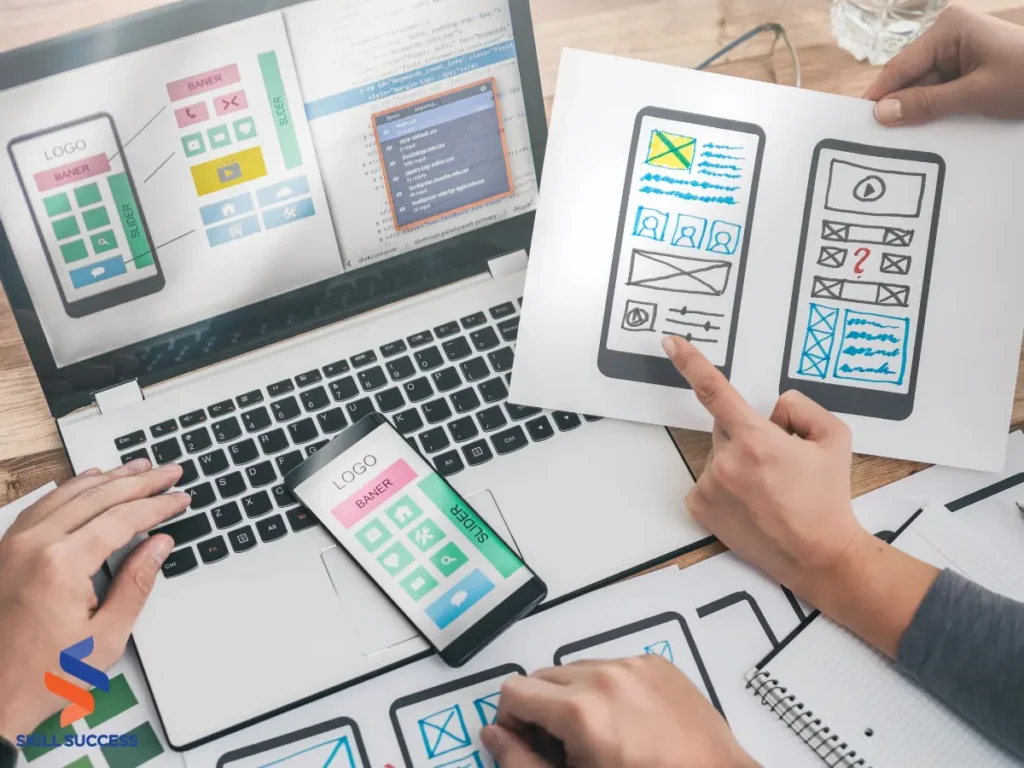Creating an app can seem like a daunting task, especially if you're new to the world of app development. The technical complexity, cost concerns, and lack of clear guidance can make it feel overwhelming. However, with the right preparation and resources, anyone can embark on an app development project successfully.
Whether you're working with a development company or pursuing it on your own, having clear app ideas and understanding the concept of a minimum viable product is essential. Additionally, exploring the top IT courses can provide valuable skills and insights for your journey.
Here's a look at how hard (or easy) it is to make an app, including free app options, and the crucial first steps to get you started.
The Basics of App Development
Making a mobile app involves several stages, each requiring different skills and tools. At its core, app development includes:
- Ideation and Planning: Defining your app's purpose, target audience, and key features.
- Design: Creating a user-friendly interface and user experience (UI/UX).
- Development: Writing the code that makes your app function.
- Testing: Ensuring the app works correctly and is free of bugs.
- Deployment: Publishing the app on platforms like the Apple App Store and Google Play Store.
Necessary Skills for Developing an App
You need the following skills to develop an app:
- Programming languages: Knowing languages like Java, Swift, Kotlin, or JavaScript is essential.
- UI/UX design: Understanding how to create a visually appealing and intuitive interface.
- Project management: Ability to manage the development process and meet deadlines.
If you don't have these skills, consider teaming up with someone who does or using app development platforms that offer drag-and-drop features. These tools simplify the process, allowing you to create apps without extensive coding knowledge.
5 Things to Do First Before Making an App
Here are 5 crucial things to remember before you build an app.
1. Plan your app
Start by clearly defining what your app will do. Identify the problem it will solve or the need it will fulfill. Outline the main features and functionalities. This initial planning phase will guide the entire development process.
2. Conduct market research
Research your target audience and competitors. Understand what similar apps are available and what makes them successful. This will help you refine your idea and ensure there's a demand for your app in the app market.
3. Set a budget
Determine how much you can afford to spend on developing your app. Costs can include software licenses, developer fees, marketing, and more. Setting a budget early helps avoid unexpected expenses later on.
4. Create a prototype
Before diving into full-scale development, create a prototype of your app. This can be a simple mockup or a more detailed clickable version. Prototyping helps you visualize your app's design and functionality and gather feedback before investing heavily in development.
5. Choose your development approach
Decide whether you'll develop the app yourself, hire a development team, or use an app builder with drag-and-drop features. Each approach has its pros and cons:
- Self-development: Requires technical skills but offers complete control.
- Hiring a developer: Higher cost but leverages professional expertise.
- App builders: Lower cost and technical barrier but may have limitations in customization.
By efficiently managing your time and productivity, DeskTime can help you stay on track with your app development milestones. Streamline your workflow and enhance your focus with DeskTime’s comprehensive tracking and analytics features.

Recommended Course for Making an App
iOS Mobile App Development Course: Create Your First 3 Apps
Start your iOS mobile app development journey today! Learn Swift, Xcode, and create apps with our beginner-friendly course. This course covers the basics of iOS development, guiding you through the process of creating your first three apps.
What makes this course unique is its focus on practical, hands-on learning. You'll master Swift, Xcode, and essential development tools while building real projects. The step-by-step approach ensures that even beginners can follow along and achieve tangible results.
I appreciate that this course is taught by Adam, an experienced iOS Developer with a solid background in Swift, Objective-C, and various frameworks. His real-world expertise and practical insights provide a valuable perspective that enriches the learning experience.
Who is this course for?
This course is perfect for UI/UX designers, mobile app developers, and anyone new to iOS development. It's also ideal for those looking to enhance their skills and build a strong foundation in mobile app development.
TAKE THIS COURSE
Key Takeaways
Creating an app is achievable with the right preparation. By planning, researching the market, setting a budget, prototyping, and choosing the right development approach, you can lay a strong foundation. Tools like drag-and-drop app builders make it easier than ever to build a successful app, turning a distant dream into an accessible goal.
For those eager to explore more topics, subscribe to the Skill Success All Access Pass. This gives you unlimited access to numerous courses, allowing you to expand your knowledge and skills at your own pace, keeping you ahead in your professional journey.

